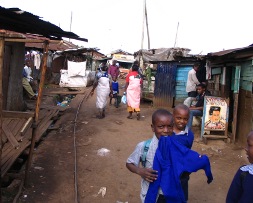Prof. Zvi Bentwich , Director
The growing threat of new infectious diseases in both developed and developing countries has become real with the emergence of two recent notable worldwide epidemics, AIDS and SARS, as well as with several other infectious diseases like West Nile virus, and Ebola virus. AIDS and tuberculosis continue to be the major players reflect the growing problem of the imbalance between the human host and the environment. They highlight our vulnerability to new infections and manifest the effects of globalization, and increased mobility as key factors
|
|
All these infections present a major challenge for the scientific community for developing new tools and technologies to improve our control over the still raging epidemics, such as AIDS tuberculosis and malaria. It is within this background that we have established a new academic Center for Emerging Diseases. Tropical Diseases and AIDS (CEMTA) at the Ben Gurion University of the Negev with special emphasis on Neglected Tropical Diseases and their interaction with AIDS and Malaria. There are several leading investigators within the University, particularly at the Faculty of Health Sciences, as well as outside it, that are willing to join this effort and help make this center a reality. We are confident that such a multidisciplinary center will enhance existing scientific collaborations, facilitate the formation of new collaborations inside and outside the country and bring to the University new sources of support for research and development in this rapidly evolving field.
 |
From its inception, the Ben Gurion University Faculty of Health Sciences has sought to have an impact on society and on its environment. This is especially evident in the recent establishment of the School for International Medicine. Thus, from the beginning, the Faculty of Health Sciences of Ben Gurion University was destined to become a center of excellence for promotion of health in Israel, in its immediate neighboring countries as well as in areas of need, especially in developing countries.
|
The goals of CEMTA Center meet these objectives completely and may indeed contribute to their realization. Finally, CEMTA Center will also be complementary to, and promote the goals of, other planned centers within the university, such as the proposed center for vaccine development, while at the same time fulfilling an unmet academic need within the university.